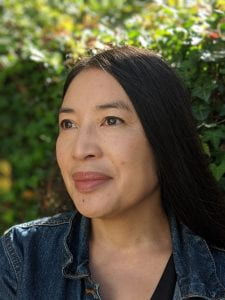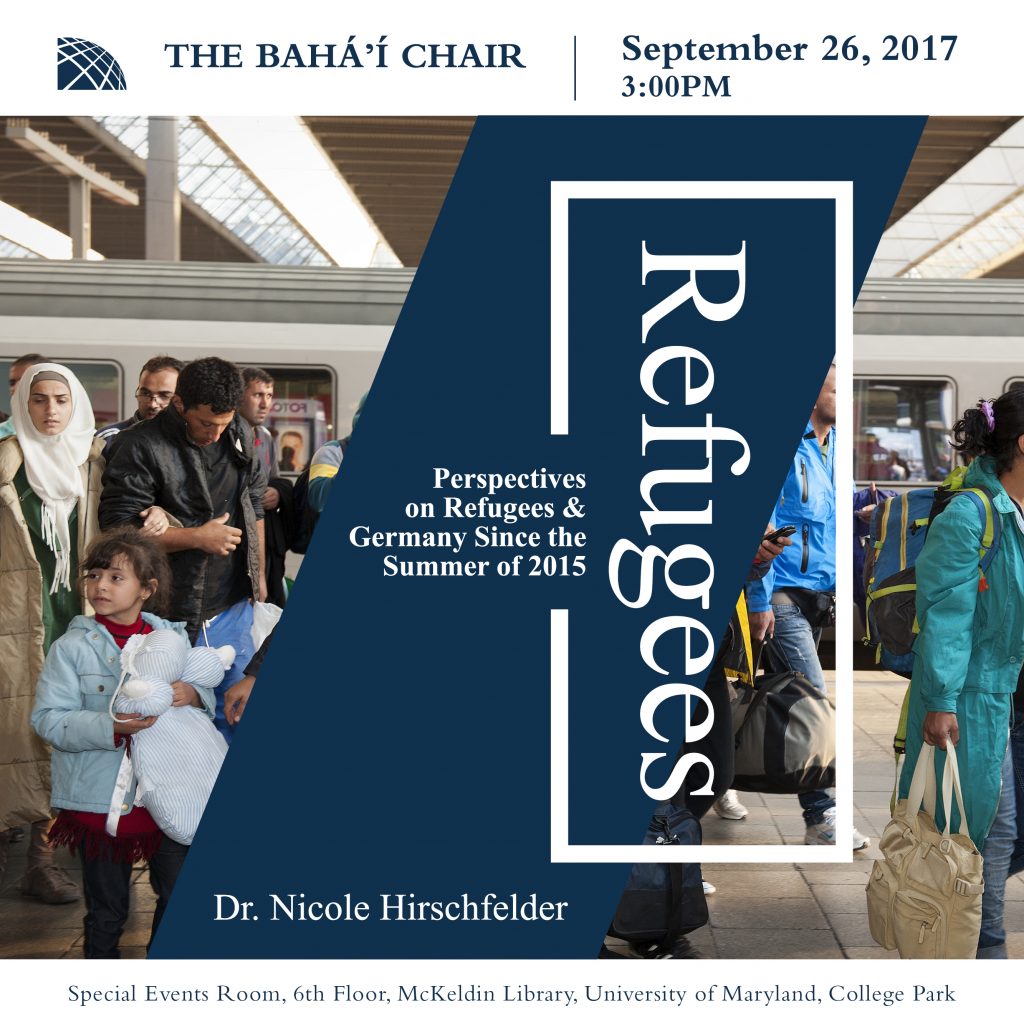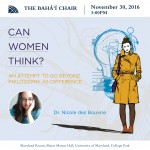May 5, 2022
11am – 12.30pm EST
Virtual Event – Register at: https://umd.zoom.us/webinar/register/WN_EFVPyWVQQjKZ8yFFic6LuQ
This event features the editors of the recent volume Fundamental Challenges to Global Peace and Security: The Future of Humanity. Professor Michael H. Allen, Professor Hoda Mahmoudi, and Dr. Kate Seaman. The discussion will explore the challenges raised in the volume around current thinking and strategies in the field of global peace and security. The discussion will be moderated by Stella Holladay Hudson. Continue reading

 Dr. Yohuru Williams
Dr. Yohuru Williams
 Kate Seaman
Kate Seaman The Bahá’í Chair for World Peace is delighted to welcome all new and returning students to campus. We have a very exciting year planned and invite you to stop by our office to learn more about us and our program’s focus on advancing interdisciplinary discourse on global peace.
The Bahá’í Chair for World Peace is delighted to welcome all new and returning students to campus. We have a very exciting year planned and invite you to stop by our office to learn more about us and our program’s focus on advancing interdisciplinary discourse on global peace. 
